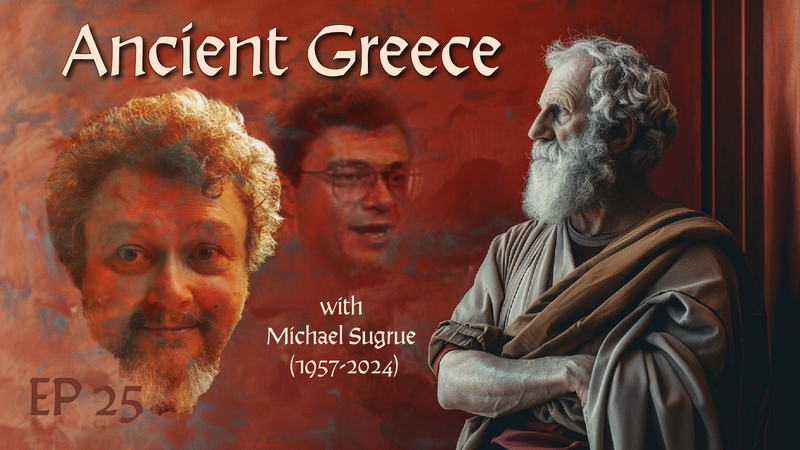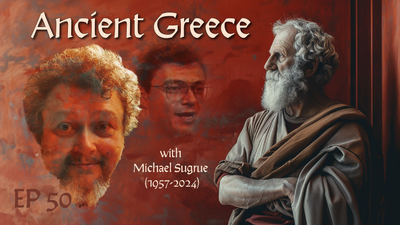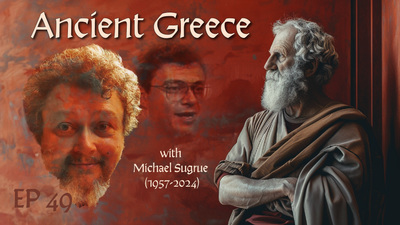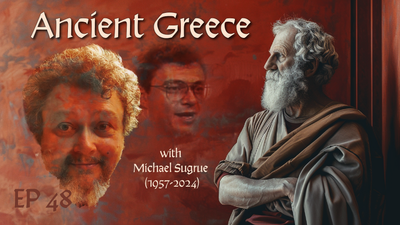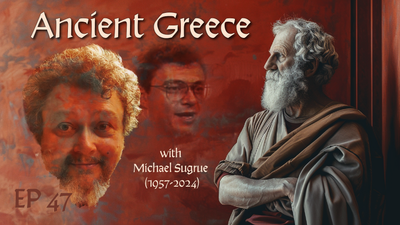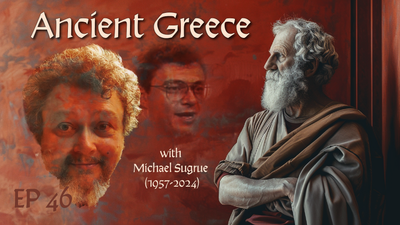When we think about the end of life, our minds often drift to uncertainty and fear. Plato’s vision of life after death, however, offers a different perspective—one that encourages us to see beyond the physical and into the metaphysical. This week, we explore Plato’s reflections on death and the afterlife, a theme most eloquently examined in Phaedo. Plato doesn't simply give us a philosophical argument; he presents an image of life that transcends the corporeal and hints at something eternal.
In Phaedo, we witness Socrates’ calm acceptance of his fate, grounded in his conviction that the soul lives on beyond death. For Socrates, the philosopher’s mission isn’t just about living well but also about dying well, with the peace that comes from knowing the soul’s journey continues. This idea isn’t merely abstract; it’s a reflection of how philosophy can transform our understanding of the most profound human experiences. Imagine, for a moment, approaching death not with trepidation but with anticipation of reaching a fuller understanding—a kind of enlightenment.
At planksip.org, we aim to bring these ancient ideas into dialogue with today’s challenges. By personifying Plato, we’re not merely holding up a long-dead thinker as an untouchable ideal but inviting you to explore these ideas within your own life. After all, what could be more relevant than pondering our existence and our ultimate fate?
From the Archives of Ancient Greece: Featuring Dr. Michael Sugrue
Dr. Michael Sugrue’s analysis of Phaedo dives deep into Plato’s arguments for the soul’s immortality. Sugrue illustrates how Plato uses Socratic dialogue to guide the reader through intricate philosophical reasoning. He highlights the metaphor of the body as a prison and the soul’s liberation upon death. By portraying the body as a mere vessel, Plato encourages us to view the soul as our essential self, temporarily encased in flesh.
Dr. Sugrue provides an engaging breakdown of key arguments, such as the “Argument from Recollection.” This argument posits that our ability to recognize forms like beauty or justice must come from knowledge our souls possessed before our birth, suggesting the soul existed before our current life. These are not just dry, philosophical propositions; they speak to a yearning for continuity, a desire to understand that there’s more to existence than meets the eye.
We invite you to consider these reflections and share your thoughts on planksip.org. Here, you can explore these ancient dialogues not just as intellectual exercises but as a framework for a deeper inquiry into your own beliefs about life, death, and the soul’s journey.
Insights from the Dialogues: Socrates’ Reflections on Death (Phaedo, 64c-67b)
In Phaedo, Socrates faces his execution with remarkable calmness, seeing his death as a release of the soul from the constraints of the physical body. This section of the dialogue is a masterpiece in exploring the themes of mortality and philosophy’s role in guiding us through life’s greatest transitions. Socrates describes the philosopher’s life as a preparation for death, where the goal is not to cling to life but to embrace the liberation of the soul.
To illustrate, Socrates uses the analogy of a swan’s song. Just as swans are said to sing their most beautiful songs before they die, so too should a philosopher greet death with grace, recognizing it as a final opportunity for wisdom. This metaphor is both poetic and powerful, urging us to reflect on how we live each day in preparation for our inevitable end. When death is no longer something to fear but a part of life’s journey, how might that change the way we live?
At planksip.org, we encourage readers to engage with these ideas and ask themselves: How do Socrates’ reflections resonate with your own views on life and mortality? By joining our community, you can exchange thoughts on what it means to live—and die—well.
Chance and Fate: Mortality and Gaming in Ancient Funerary Rites
In ancient Greece, games were often played at funerals, using symbols like knucklebones (astragali) to represent the randomness and uncertainty of life. These games weren’t just idle entertainment; they carried deep metaphorical significance. Knucklebones were seen as a way of acknowledging fate’s unpredictable nature, a humble recognition that life’s outcomes aren’t always in our control.
Explore the Mystical World of Astraguli: Ancient Games of Chance with Cultural Significance.
Consider the game of petteia, an ancient Greek precursor to chess. It was a game of strategy, but there was also an element of luck involved, reflecting the delicate balance between human agency and fate. In funeral rites, games like these were sometimes used to commemorate the deceased, symbolizing both their life’s unpredictability and the acceptance of their fate.
At planksip.org, we explore these ancient games as more than relics of the past. They offer insight into how our ancestors grappled with profound questions of fate and mortality. We invite you to ponder: How do we, in our modern lives, play our own “games” with fate? Engage with our discussions on planksip.org to uncover how ancient wisdom can inform our contemporary views on life and death.
Virtues Revisited: Practical Lessons for Today
One of the key virtues Socrates embodies in Phaedo is courage—not a reckless bravado, but a deep, philosophical courage rooted in understanding. In Plato’s dialogues, courage is more than facing physical danger; it is about having the resolve to face the unknown with a clear mind and an unwavering heart. This kind of courage invites us to see our lives in a broader perspective, embracing the uncertainties of existence with wisdom and grace.
Imagine, for example, a modern leader who embodies this kind of courage—not just in facing challenges head-on, but in admitting the limits of their knowledge and acting with integrity despite uncertainty. In Phaedo, Socrates’ courage in facing death wasn’t about bravery for its own sake; it was a testament to his lifelong pursuit of wisdom and truth. How can we cultivate this virtue in our own lives?
By participating in planksip.org, you can engage with others in exploring how these virtues apply today. Together, we can examine what it means to embody courage not just in extraordinary moments, but in everyday life.
Engage with Us: Reader’s Corner
What are your reflections on life after death? How do Plato’s insights shape your understanding of mortality and the soul? Share your thoughts with us on planksip.org, where the personification of Plato is not just an ideal but an invitation to live with greater wisdom. We’ll feature select responses in next week’s newsletter to keep the conversation alive and growing.
Closing Reflection: Socrates’ Enduring Legacy
Socrates’ approach to death, as portrayed in Phaedo, offers a lesson that transcends the historical moment: the fear of death is often rooted in the unknown, and philosophy is our guide to illuminating that mystery. In facing his death with composure, Socrates leaves behind a model for all of us—not just to face the end bravely, but to live in such a way that we are prepared to let go when the time comes.
As we explore these themes together, let’s remember that the journey toward wisdom is ongoing. By embracing mortality as a natural part of life’s journey, we open ourselves to deeper reflections on existence, purpose, and the pursuit of wisdom.

Plato Re-Imagined
This course offers 32 comprehensive lectures exploring most of Plato's dialogues. These lectures guide students toward a consilient understanding of the divine—a concept that harmonizes knowledge across disciplines and resonates with secular and religious leaders. As a bonus, Lecture #33 focuses on consilience, demonstrating how different fields of knowledge can converge to form a unified understanding.

